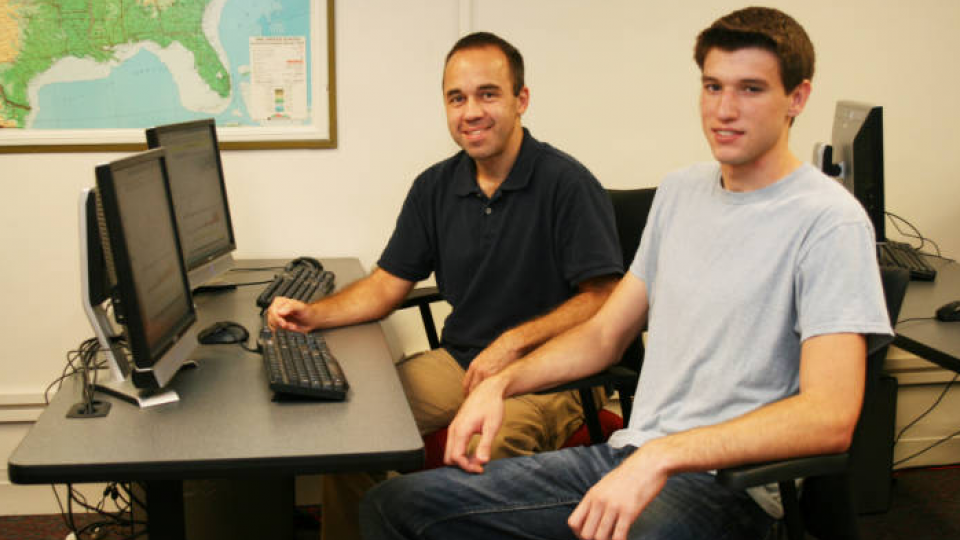
Students who want agricultural commodities trading experience will soon get the real-time and hands-on training they need at the University of Nebraska–Lincoln’s Agricultural Economics Commodities Trading Room.
Gifts to date of $682,500 made to the University of Nebraska Foundation support a current fundraising initiative aimed at creating a state-of-the-art commodities trading room within the Department of Agricultural Economics. Located in Filley Hall on East Campus, the facility will be designed to give students real-time commodity marketing experience and advanced training in markets, merchandising, futures and options.
With the education of future generations of agricultural economists and business professionals in mind, the university’s corporate partners have been especially helpful in funding the new facility. The following organizations have provided support:
• CHS Foundation, the charitable arm of CHS, a global energy, grains and foods system company, donated $150,000.
• CoBank, a national cooperative bank serving industries across rural America, donated $150,000.
• Archer Daniels Midland Company (ADM), a world-leading agricultural processor, donated $100,000.
• Cargill, an international producer and marketer of food, agricultural, financial and industrial products and services, donated $100,000.
• Nebraska Soybean Board funded $70,000.
• Nebraska Corn Board funded $50,000.
• The Andersons Inc. Charitable Foundation, the charitable arm of The Andersons, a diversified agribusiness and logistics firm, donated $30,000.
• The Scoular Foundation, charitable arm of The Scoular Company, an agricultural marketing company located across North America, donated $30,000.
• Nebraska Wheat Board funded $2,500.
Gifts made for the trading room go to purchase needed technology such as interactive presentation screens and Smart Boards, projectors and screens, interactive control systems and audio and video equipment. It also provides funds for future updates and software.
“We are extremely thankful for each of our donors and corporate sponsors who have stepped forward to help with this important project,” said Larry Van Tassell, head of the Department of Agricultural Economics. “For years to come, this support will ensure students who pursue the commodities trading option receive the education and hands-on experience they need.”
Supervised by agricultural economics faculty, the trading room will allow students to develop and test trading strategies, merchandize commodities, and develop risk management plans in a dynamic, real-time learning environment. It will also provide students and faculty the ability to conduct research in these areas.
The trading room will feature individual computer work stations loaded with the latest analytical and simulation software, connected to a market exchange, with each station having multiple monitors. The room will also feature smart boards for instruction on key topics related to commodities trading.
“The more realistic the educational environment, the more relevant the education will be,” Van Tassell said. “In short, it will give our students a real-time education.”
The trading room will also be used for outreach training programs and training events for producers, merchandizers and commodity traders.
Until now, UNL students interested in commodities trading have used marketing simulation games to experience commodities trading. While it provided a good educational experience before, giving students the opportunity to learn in a real-time commodities market with professional analytical software provides better education and makes UNL one of only a few agricultural economics programs offering a commodities trading room for students.
Van Tassell said the fundraising initiative also includes seeking donations for a permanent endowment that will provide ongoing support for maintaining the trading room as well as provide annual student scholarships and awards for student travel and activities.
To make a gift to the Agricultural Economics Commodities Trading Excellence Fund, go to nufoundation.org/agecon. For information and to learn about other ways to give, contact Ann Bruntz or Kaye Jesske at the University of Nebraska Foundation at 402-458-1100 or 800-432-3216.
The gifts for the commodities trading facility also provide support to the University of Nebraska’s current fundraising initiative, the Campaign for Nebraska: Unlimited Possibilities, and a top priority to increase support for agriculture and life sciences programs.
The University of Nebraska Foundation is an independent, nonprofit organization raising private gifts to support the University of Nebraska for more than 77 years. In 2013, donors provided the university with $236.7 million for scholarships, medical and other research, academic programs, faculty support and facilities. The foundation’s comprehensive fundraising campaign, the Campaign for Nebraska, has raised more than $1.5 billion for the university and concludes in 2014. For more information, visit campaignfornebraska.org.